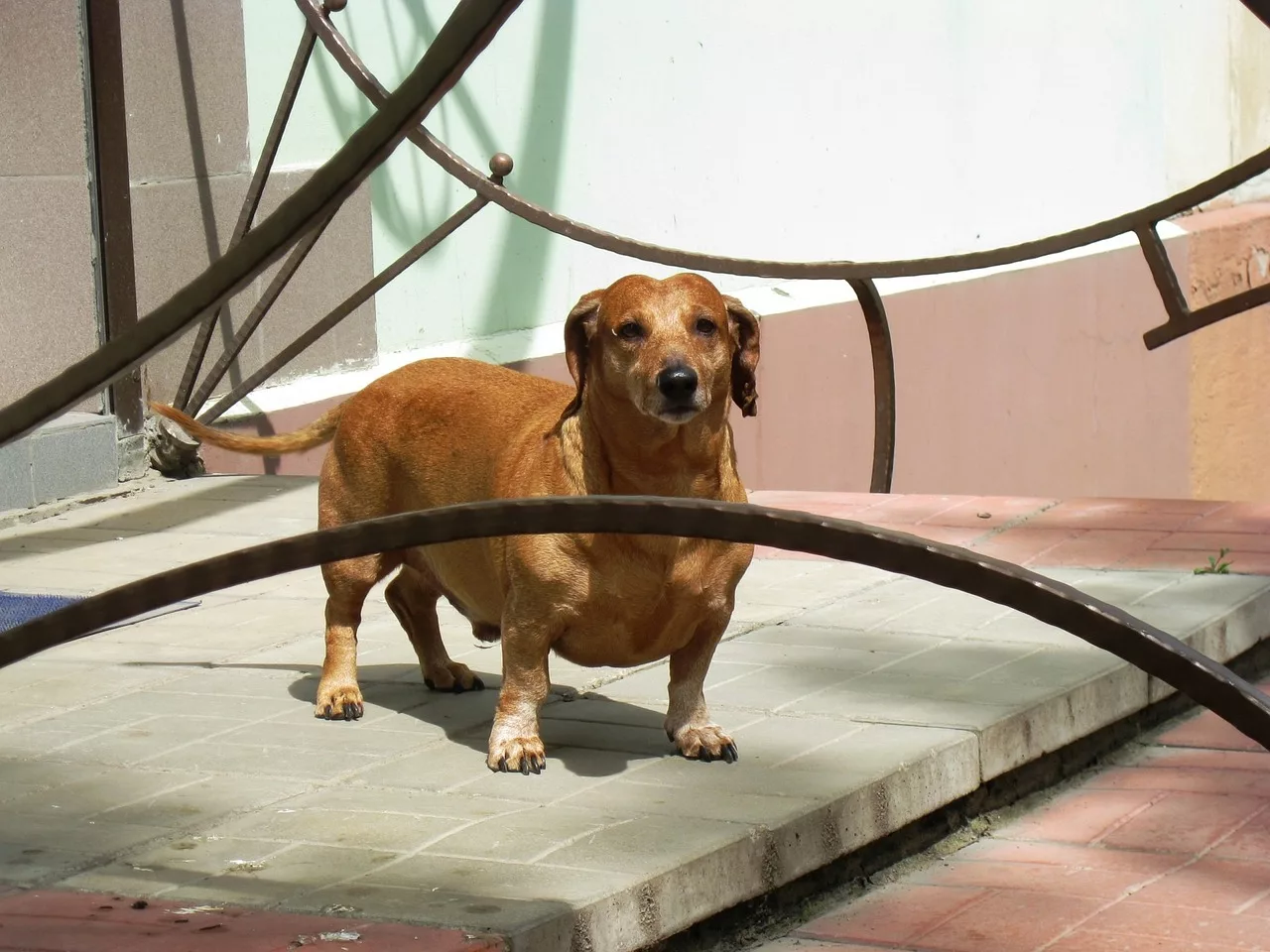
When Can You Tell A Dachshund Is Pregnant

If you’re a proud owner of a female dachshund, you may wonder how to tell if she is expecting a litter of puppies. The signs of pregnancy in dachshunds are subtle but detectable if you know what to look for. In this article, we will explore the telltale signs that can help you determine if your dachshund is pregnant and prepare for the upcoming arrival of adorable little pups.
Understanding the reproductive cycle of a dachshund
Before we dive into the signs of pregnancy in dachshunds, it’s important to understand their reproductive cycle. Female dachshunds typically go into heat, also known as estrus, every six to eight months. During this time, they are receptive to mating and can become pregnant. The heat cycle consists of four stages: proestrus, estrus, diestrus, and anestrus.
During the proestrus stage, which lasts for about 9-10 days, a dachshund will experience vaginal bleeding but will not accept a male for mating. This is followed by the estrus stage, lasting about 7-10 days, where the bleeding stops, and the dachshund becomes receptive to mating. If she mates during this period, pregnancy can occur.
After the estrus stage, the diestrus stage begins, lasting approximately 60-90 days. If the dachshund is pregnant, this is when the gestation period takes place. Finally, the anestrus stage is a period of rest for the reproductive system, lasting for several months before the next heat cycle begins.
Signs and symptoms of pregnancy in dachshunds
One of the most noticeable signs of pregnancy in dachshunds is weight gain. As the pregnancy progresses, your dachshund’s abdomen will expand, and she may gain weight around her midsection. You may notice that her belly feels firmer to the touch. However, it’s important to note that weight gain alone may not be a definitive sign of pregnancy, as dachshunds can also gain weight due to other factors such as overeating or a sedentary lifestyle.
Another sign to look for is changes in appetite. Pregnant dachshunds may experience an increase or decrease in their appetite. Some may have a decreased appetite during the early stages of pregnancy, while others may have an increased appetite as the pregnancy progresses. It’s essential to monitor your dachshund’s eating habits and consult with your veterinarian if you notice any significant changes.
Behavioral changes can also indicate pregnancy in dachshunds. Your dachshund may become more affectionate or seek more attention than usual. She may also exhibit nesting behaviors, such as rearranging bedding or searching for a comfortable spot to give birth. These behavioral changes are a result of hormonal fluctuations and the instinctual preparation for motherhood.
In addition to weight gain, appetite changes, and behavioral shifts, you may notice physical changes in your dachshund’s nipples. As the body prepares for motherhood, the nipples will become larger and may turn a darker shade of pink. This change is due to increased blood flow to the mammary glands in preparation for nursing the puppies.
How to confirm pregnancy in a dachshund
While these signs may strongly indicate pregnancy, it’s crucial to consult with your veterinarian for confirmation. Your vet can perform a variety of tests to determine if your dachshund is pregnant. One common method is an abdominal ultrasound, which allows the vet to visualize the developing puppies in the womb. Another option is a blood test that detects the presence of pregnancy hormones in the dachshund’s bloodstream.
It’s important to note that these tests are most accurate when performed after the 3-4 week mark of gestation. Before this time, it may be challenging to detect the presence of developing puppies. Your veterinarian can guide you on the best timing for these tests based on your dachshund’s specific situation.
Preparing for the arrival of dachshund puppies
Once pregnancy is confirmed, it’s time to start preparing for the arrival of the dachshund puppies. Creating a comfortable and safe space for your dachshund to give birth is essential. Set up a whelping box in a quiet area of your home, away from high foot traffic, noise, and other pets. The box should be large enough for your dachshund to move around comfortably and have low sides to prevent the puppies from escaping.
Line the whelping box with clean bedding, such as old towels or blankets, that can be easily washed. Provide a heat source, such as a heating pad or heat lamp, to keep the puppies warm during their early days. Make sure to keep the whelping box clean and regularly check on the dachshund and her puppies to ensure their well-being.
Proper nutrition and care for a pregnant dachshund
During pregnancy, it’s essential to provide your dachshund with proper nutrition and care. Consult with your veterinarian to determine the best diet for your pregnant dachshund. Generally, pregnant dachshunds require a high-quality, balanced diet that is rich in nutrients and calories to support the growth and development of the puppies.
Ensure that your dachshund has access to fresh water at all times, as hydration is crucial during pregnancy. It’s also important to monitor her weight gain and adjust her food portions accordingly to prevent excessive weight gain, which can lead to complications during pregnancy and delivery.
Regular veterinary check-ups are vital during pregnancy to monitor the health of your dachshund and her developing puppies. Your veterinarian can provide guidance on vaccinations, deworming, and any additional care needed to support a healthy pregnancy.
Potential complications during dachshund pregnancy
While most dachshund pregnancies progress smoothly, there can be potential complications to be aware of. One common complication is false pregnancy, also known as pseudopregnancy, where a dachshund exhibits signs of pregnancy but is not actually carrying any puppies. False pregnancies can occur due to hormonal imbalances and typically resolve on their own without intervention.
Other complications to watch for include gestational diabetes, which can occur in pregnant dachshunds and require careful management, as well as difficulties during labor and delivery. It’s essential to stay vigilant and contact your veterinarian if you notice any concerning symptoms or behaviors during pregnancy.
The gestation period of a dachshund
The gestation period, or the length of pregnancy, for a dachshund is typically around 63 days, give or take a few days. It’s important to note that this is just an average, and individual dachshunds may have slightly shorter or longer gestation periods. Keeping track of the breeding dates and consulting with your veterinarian can help determine an estimated due date for your dachshund’s puppies.
Preparing for labor and delivery
As the due date approaches, it’s crucial to be prepared for the labor and delivery process. Familiarize yourself with the signs of impending labor, which may include restlessness, nesting behaviors, loss of appetite, and a drop in body temperature. Have an emergency contact number for your veterinarian readily available in case you need assistance during the birthing process.
Ensure that the whelping box is clean, warm, and ready for the dachshund to give birth. Keep a close eye on her and provide support and encouragement during labor. However, it’s important to allow the dachshund to take the lead and not interfere unless necessary. In most cases, dachshunds are excellent mothers and instinctively know how to care for their puppies.
Caring for newborn dachshund puppies
Once the puppies arrive, it’s crucial to provide proper care and monitor their health. Make sure each puppy is breathing and nursing well. Keep the whelping box warm and clean, and provide additional heat sources if needed to maintain a comfortable temperature for the puppies. Monitor their weight gain and consult with your veterinarian if you have any concerns.
During the first few weeks, the mother dachshund will take care of her puppies’ needs, including nursing, grooming, and keeping them warm. It’s essential to provide a calm and stress-free environment for the mother and puppies, limiting visitors and disturbances during this critical bonding period.
Conclusion
Welcoming a litter of adorable dachshund puppies is an exciting and rewarding experience. By understanding the signs of pregnancy, properly caring for your pregnant dachshund, and preparing for the arrival of the puppies, you can ensure a smooth and healthy journey for both the mother and her little ones. Remember to consult with your veterinarian throughout the process to receive expert guidance and support. Enjoy this special time and cherish the precious moments with your dachshund and her new bundle of joy.
Tags:
